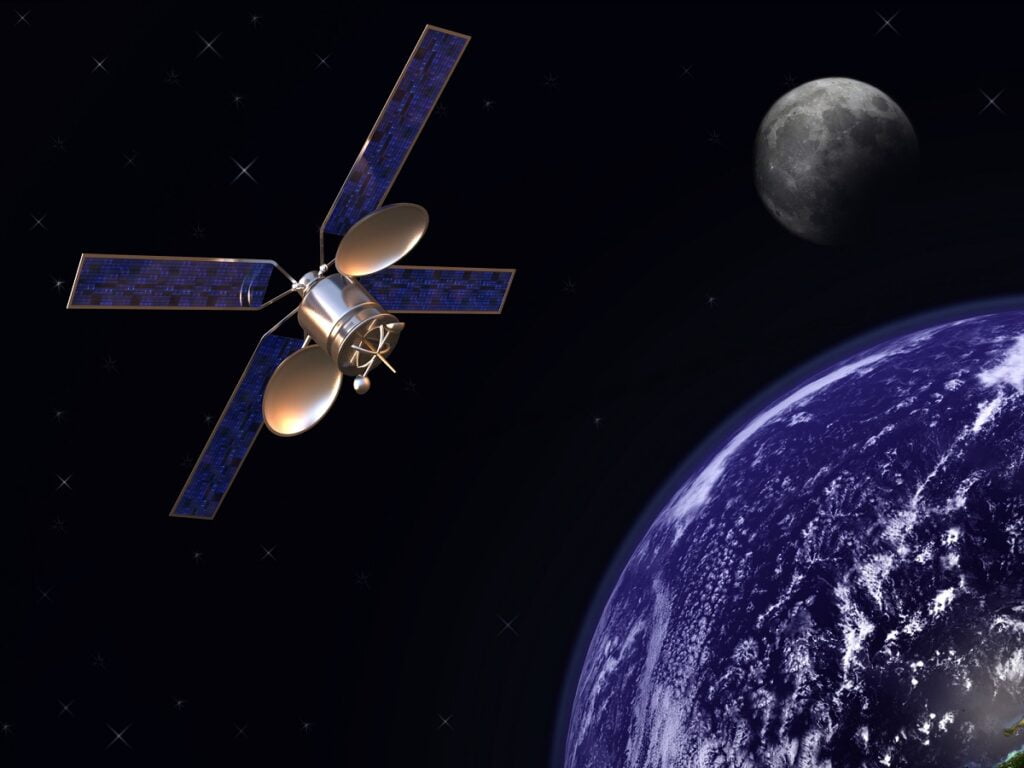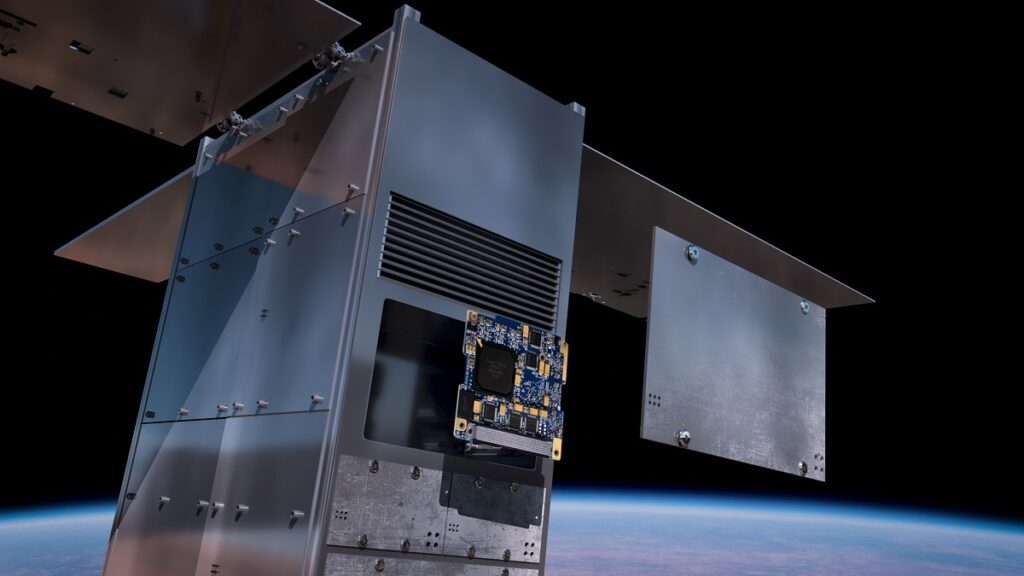Israel’s Ramon.Space, a leader in space-resilient computing infrastructure, has unveiled a new type of storage system that can withstand the harsh environment of space.
NuStream is the latest product from Ramon.Space’s computing infrastructure platform for data-driven space missions. Ramon.Space said in its announcement unveiling the product that NuStream “is the core to enable next-generation applications and space services” due to its high-density storage and advanced modular architecture.
Based in Yokneam Ilit with offices in Palo Alto, Ramon. Space builds space-resilient super-computing systems that bring earth-like computing capabilities to space. The company says it aims to transform the way software and hardware are used in space “so applications can be developed and adapted in real-time, creating infinite possibilities for new space satellite payloads and deep space missions.”
The number of satellites and accompanying applications and data in space are increasing and there is a huge need for storage capability as “storage is actually one of the main capabilities needed in order to have computing,” Smadar Hoffert-Strauss, head of strategic initiatives at RamonSpace, tells NoCamels in a Zoom interview from Paris, where she is in the city for Paris Space Week.

Hoffert-Strauss says the product is “very innovative” because “NuStream actually removes the bottleneck of storing massive data in space by providing a easily integrated, reliable storage solution. Our product enables satellite operators to collect the data they need – they are not limited.”
NuStream also removes barriers “so that you can do everything that you want and you can collect every day knowing that we can provide you with a reliable storage solution,” she adds.
She compares it to the camera found on the smartphone, noting that it’s the “best example” of why a storage solution is necessary.
“Cameras on your smartphone took off the moment we were able to store a lot of data. If there was no storage capacity, the camera would be useless. The same thing is happening in space today. We provide more storage so that satellite manufacturers can develop more sensors and cameras to collect high-quality data. Customers have already expressed interest in our storage solution and are already asking for more capacity for their next-generation applications,” says Hoffert-Strauss.
‘Earth-like’ computing in space
The whole idea is that “there is an amazing trend of satellites going to space. Earth observations is one of the biggest missions the satellites are doing today. There are hundreds of satellites circling the earth and taking pictures and collecting data and each satellite needs to store this data somewhere,” she says.
Satellites circle the earth every 90 minutes, collecting data in that time frame. When they cross over to their ground station, they download that data, she explains. “The catch here is that the satellites are collecting a lot of data and they have a very small window in which they can download that data,” she says, “Sometimes they cannot even download all the data to the ground station in that timeframe and in the meantime more data is being collected.The data is very valuable because it collects real-time information and it still needs to be reliably stored until its gradually downloaded to earth.”

Hoffert-Strauss says that Ramon.Space has been attempting to bring earth-like computing infrastructure to space in the last couple years.
Sign up for our free weekly newsletter
Subscribe“The needs for capacity are always increasing, and we are now seeing similar storage needs in space as on earth,” said Dov Moran, chairman of the board at Ramon.Space and Managing Partner at Grove Ventures in the announcement from Ramon.Space. “As a veteran in the storage industry, I was highly intrigued by Ramon.Space’s technology and its unique capabilities for this very interesting and rapidly growing market. The company’s technology delivers unparalleled capacity and reliable Rad Hard (radiation hardening) performance to address the data-intensive applications necessary for the future of space tech.”
“Until today computing capabilities in space were relatively limited. Now with space computing infrastructure and high-capacity storage we can do more,” she says, adding that NuStream storage will be the start of earth-like computing in space.
“This is a huge thing,” she emphasizes “And it really provides something new.”
The storage solution is also uniquely designed for space. Ramon.Space has built its own silicon and uses its own software for the solution, Hoffert-Strauss says.
NuStream technology
NuStream is designed for multi-year space missions and will utilize in-house radiation-hardened technology to deliver reliability and robust services in various space applications. The optimized size, weight, power, and cost offer highly reliable storage capabilities to meet the unique environmental requirements of space without compromising performance.
NuStream also provides parallel multi-sensor recording using stream technology and radiation tolerance achieved through Virtual Radiation Shield controlled by Ramon.Space’s in-house RC64 processor.
“The number of data-centric satellites continues to grow, as demand from more information from space through the utilization of various sensors is increasing exponentially,” said Dallas Kasaboski, Senior Analyst, NSR. “For processing capability to keep pace with this growth, there is an undeniable need for space-hardened storage systems.”
“We are solving one of the last great challenges in the industry: delivering an earth-like computing infrastructure to space,” said Avi Shabtai, CEO of Ramon.Space. “We are proud to release our storage solution, a core element of our space compute platform, which will set new benchmarks for capacity with regards to size, weight and power (SWaP).”
Ramon.Space is using proven technology to revolutionize orbital services and radically transform satellites into software-empowered, smart and autonomous systems. With high-density SSD-based storage and computing capabilities, the company enables data centers and data networks in space, enabling non-stop data center services on-orbit and the build-out of computing infrastructure in space.
The company, which raised $17 million in a Series funding round last May, announced in August that it was selected by the Israel Space Agency to provide a space computing payload for a mission in early 2022.
Related posts

Editors’ & Readers’ Choice: 10 Favorite NoCamels Articles

Forward Facing: What Does The Future Hold For Israeli High-Tech?

Impact Innovation: Israeli Startups That Could Shape Our Future




Facebook comments